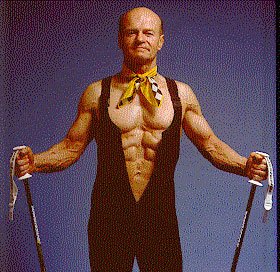Clarence Bass Ripped Pdf

Trying to follow Clarence Bass' 'Lean for. Since those changes have been following Clarence Bass style Diet and. Drugs and or diet combo to get ripped as. The reason I wanted to show Clarence Bass’s minimal routine, is to get you to realize that it is fine to skip a workout if you don’t feel recovered.
Clarence Bass is the very definition of the term ripped. Long before the world knew what it meant to be truly ripped to shreds, Clarence was amazing readers across the globe with his physique. Now, in his 70's, Clarence Bass is still going strong. He is as lean as ever. For more information on the living legend Clarence Bass, please visit his website, or check out his Ripped or Lean Advantage book series. Muscle and Strength: I began lifting as a teen in the late 70's. At that time, you could barely pick up a magazine or bodybuilding book, and not see a picture of Clarence Bass.
For those not familiar with Clarence Bass, could you please tell us about your background, and how exactly you became such a popular bodybuilding icon? Elegance Jc 5428 Manual Arts here. Clarence Bass: I began lifting when I was about 13 and never stopped. Began as an Olympic lifter and turned to in my late 30s. Won my class in Past 40 Mr. America and Mr. Wrote the book Ripped in 1980, and began writing a column in Muscle & Fitness about the same time; continued writing this column until about 1996, when I started an online column on our website: cbass.com.
Just posted articles #145 and 146 this week. Best evidence of what I've been doing along with practicing law and writing books are my photos from 15 to 70:.
Muscle and Strength: Do you have good genetics for staying lean and ripped, or is it all about diet for you? Clarence Bass: People who say bodybuilding is largely often have an axe to grind. Starving yourself is certainly not the secret to becoming and staying lean. I believe my success comes mainly from careful attention to healthy eating and regular training, weights and aerobics. To the best of my knowledge, no one else in my family has even remotely approached my level of leanness, much less maintained it for decades on end.
My genes obviously provide the potential to be lean and muscular. My guess is that most people have the capacity to do what I have done, or come very close.
I am an example of what happens when potential and healthy, active lifestyle come together. Muscle and Strength: This may seem like an odd question, but I need to ask it.
You always look in peak shape. Has there been a period of time in the last 30 years that you've let yourself go, at least a little bit? Clarence Bass: Sure, like most people, my body composition fluctuations over the course of the year, but only about five pounds in my case. I believe that's the key to staying lean.
It's so much easier than gaining 20 or 30 pounds, like many do, and than starving yourself to take it off again for photos or a contest. Cutting calories severely not only makes you miserable, it also causes a slowdown in metabolism, which speeds up weight gain the next time around. It's an insidious and viscous cycle. Most people lose muscle with each up-and-down cycle, the reverse of what bodybuilders hope for. Chris Lund, some years ago, told me I was the only bodybuilder he'd photographed who didn't pig out after the shoot. I told him that I didn't starve myself before the shoot and had no urge to overeat afterwards.
(I don't think he believed me) Muscle and Strength: What does your current look like, and has you approach to training changed at all with age? Clarence Bass: My basic approach to training hasn't changed for more than 20 years. My workouts are short, hard, and equally balanced between weights and aerobics.
I sit down with my training diary before every training session and look for ways to improve over the last time I did the workout. I believe that mindset is what keeps me motivated. I don't believe in training to maintain. That doesn't mean I train to failure every workout, however. I still train in hard/easy cycles of gradually increasing intensity; see. I have made some adjustments over the years - for my hip replacement, for example - but the basic approach remains the same. I currently do three workouts a week; one weights, one aerobics, and one half and half.